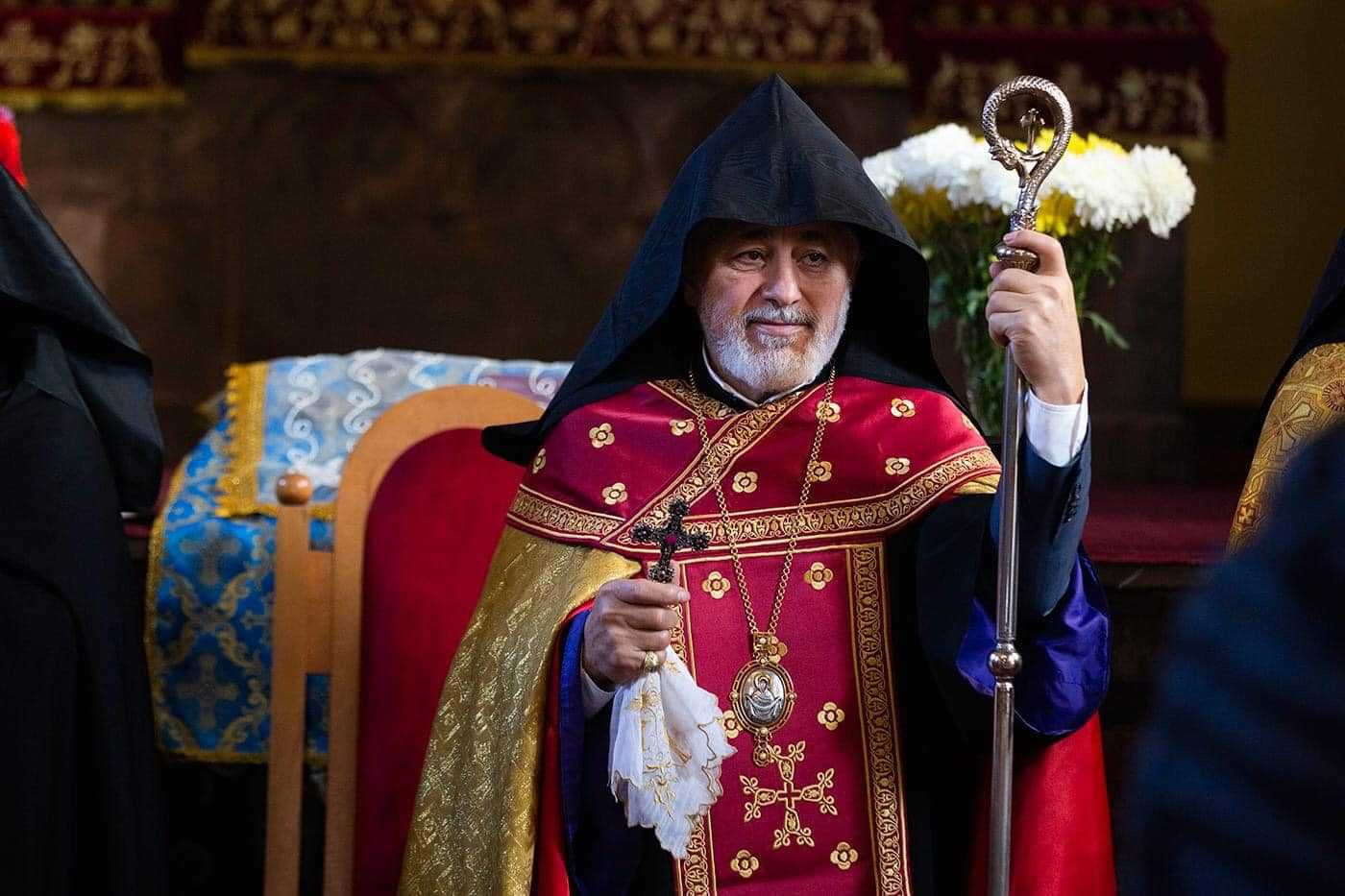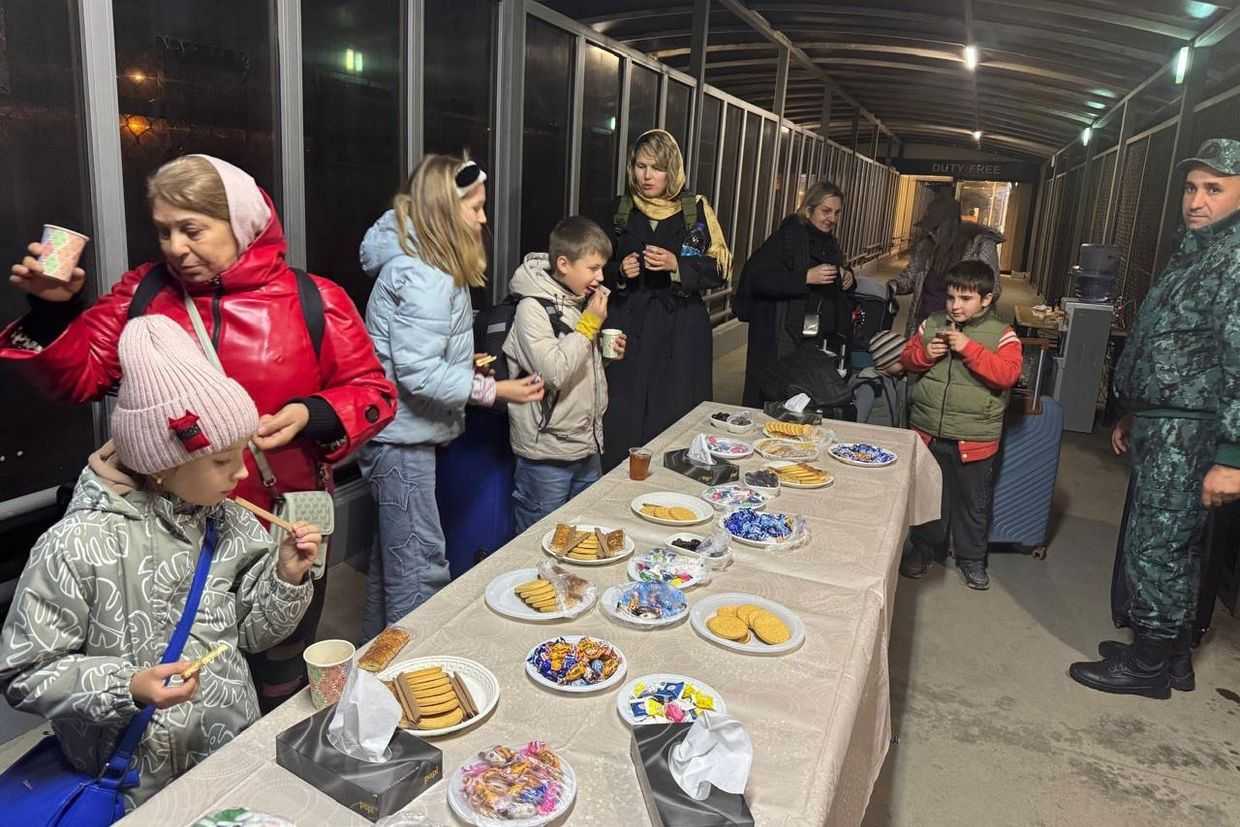
After a move that neither of them could have anticipated, two friends from Lebanon ended up bringing a little piece of home to northern Armenia.
‘It was a crazy idea’, admits Christiane ‘Kiki’ Saadeh.
In 2020, Kiki Saadeh and Natalie Khalife were living in Lebanon and had just lost their jobs in hospitality, a result of a financial crisis compounded by the COVID-19 pandemic and Beirut port explosion. Despite their deep devotion to Lebanon, or perhaps because of it, the two friends felt they could not remain at home watching their nation descend into economic, political, and social disaster.
So in August of 2021, they decided to make a change. They packed up their belongings, uprooted their lives in Lebanon, and moved to a country neither of them had been to before — Armenia.
A year later, the friends ended up finding a home and sense of purpose in an unlikely place: the northern Armenian city of Vanadzor, a former industrial centre whose star had fallen along with the Soviet Union.
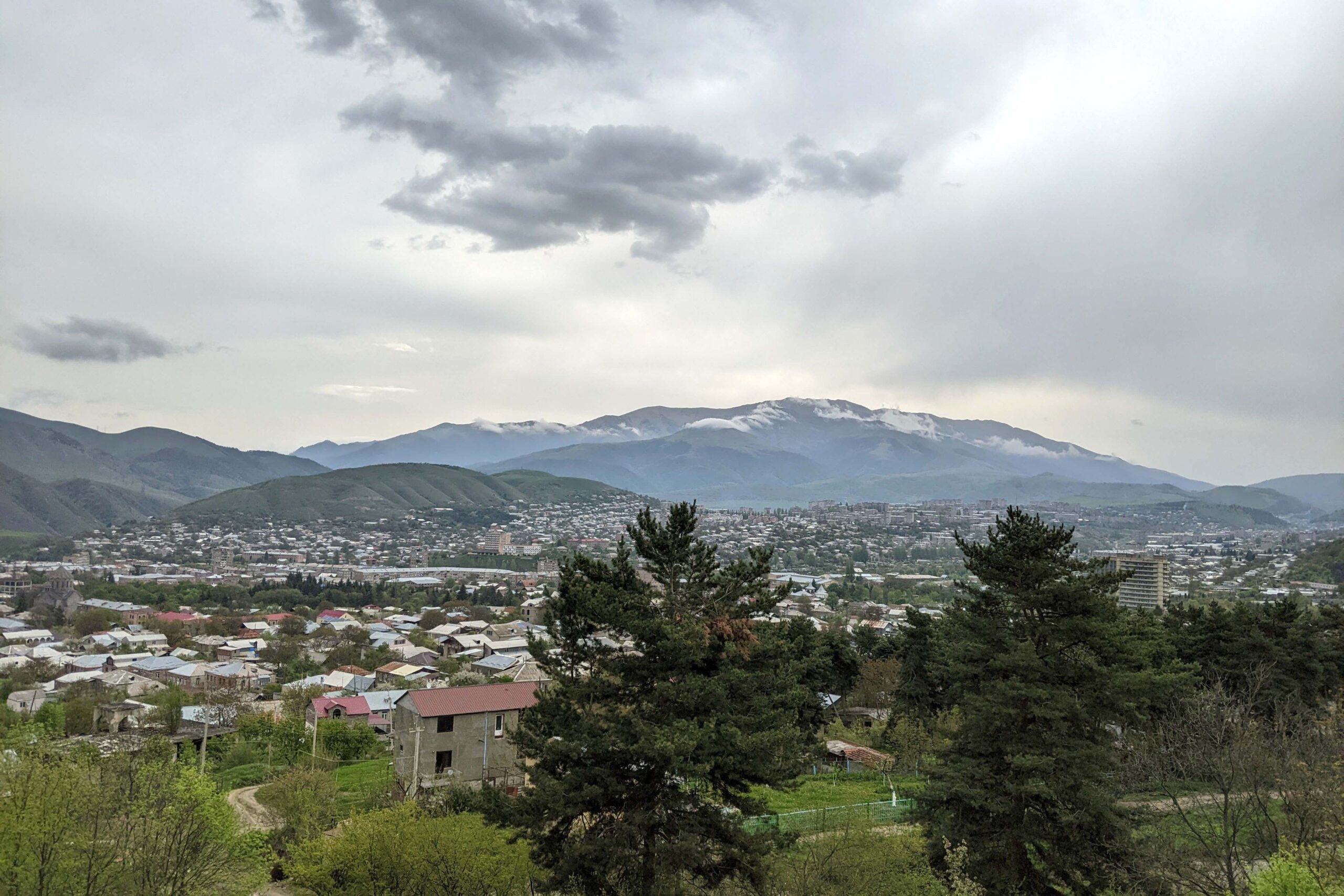
‘Almost nobody speaks English there and we don’t speak Armenian, but we wanted to make a life in Vanadzor‘, says Kiki, a Lebanese Maronite with no Armenian heritage.
What brought them to settle in Vanadzor is a story in itself.
On the morning of 14 August 2022, Kiki had a strange feeling that they needed to get out of Yerevan immediately.
She urged Natalie to cancel her planned errands at the nearby Surmalu Market, and for them to instead visit Vanadzor, in the northern Lori Province. Upon arrival, they discovered the market had exploded just after they left, leaving 16 people dead and over 60 injured due to improperly stored fireworks at an on-site warehouse.
Unable to return to their dust-filled neighbourhood for days due to health risks, their chance day trip became an extended stay. The two friends fell in love with Vanadzor, and the idea to open a restaurant there was born.
A new life
Although it became her livelihood, Kiki had no knowledge of how to cook until she lost her job in 2020. She used her newly-acquired free time to practice making traditional Lebanese dishes based around ‘saj’ bread. After a while, she began selling them out of her garage in her hometown of Bejjeh, which in an uncanny twist is Arabic for ‘explode’.
After Kiki and Natalie moved to Yerevan, they were unable to find jobs in hospitality. Kiki found work teaching English, and Natalie in a supermarket, but Kiki says that something ‘wasn’t adding up — we weren’t happy in Yerevan’.
But after returning from their trip to Vanadzor, things seemed clearer. Kiki and Natalie swiftly packed up their lives in Yerevan, moving to Vanadzor at the end of August 2022. During their days in the city, they had found a space that suited their needs, which they began renovating immediately after moving.
In November 2022, Kiki and Natalie opened Sajj Terouh Setté, hailed by a number of customers as the most authentic Lebanese restaurant in all of Armenia.
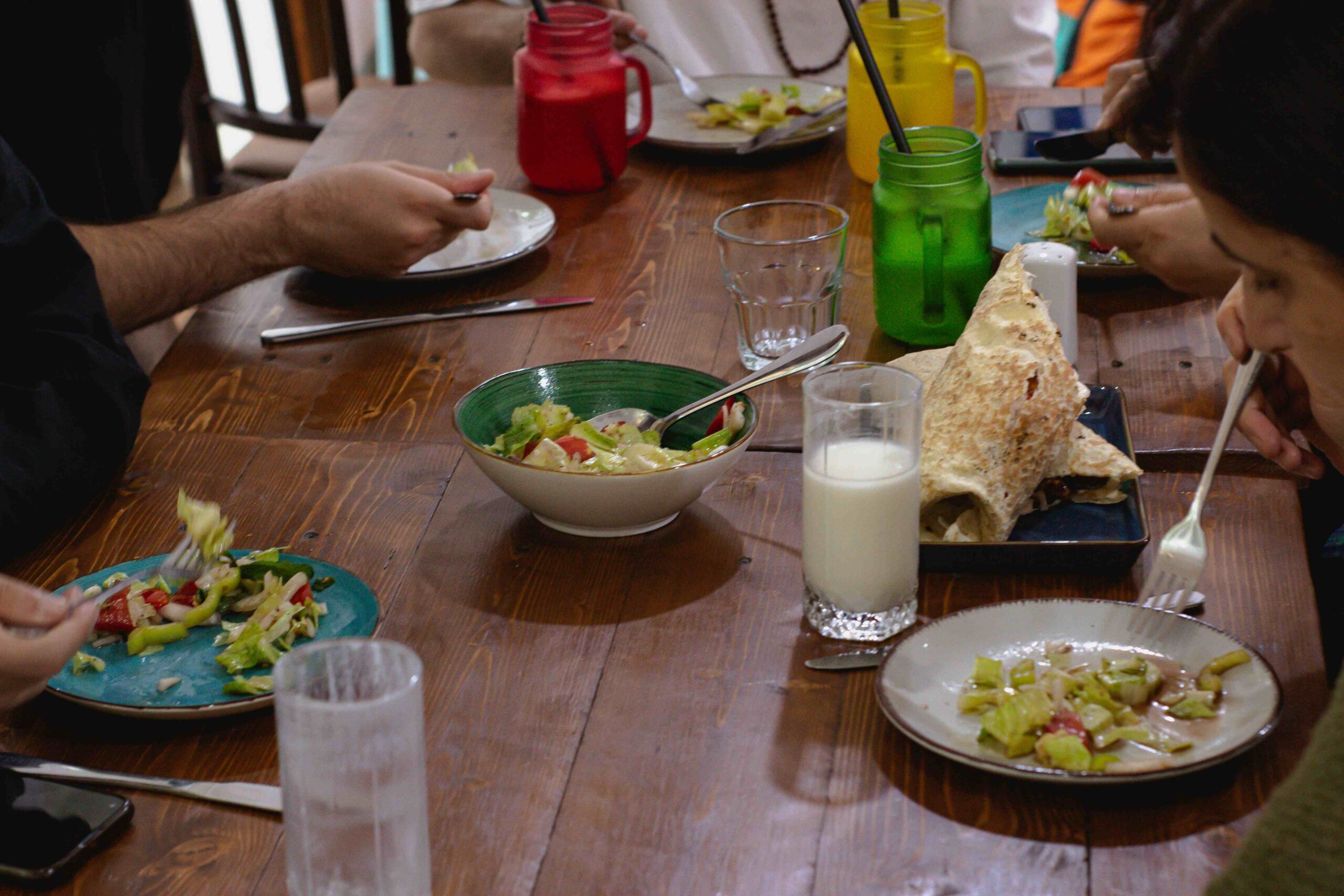
The name represented their mission of bringing a bit of Lebanon to Armenia: a sajj is the name of the oven in which they bake the saj bread, ‘terouh’ is both the name of property owned by Kiki’s grandmother in Lebanon and a term for a rainwater gulley between mountains, and ‘setté’ means grandmother.
‘Many thanked us for seeing Vanadzor’s potential‘, says Kiki. ‘It reminds me of Lebanon because everyone here is so kind and hospitable, they will run to help you.’
Despite being Armenia’s third largest city and a former industrial hub, the number of people living in Vanadzor has dropped by half from just under 170,000 at independence in 1991, with the city only beginning to show signs of development in the past few years.
The fall in population is in line with national trends throughout that period, and has shown little sign of abating: in 2021 alone, over 70,000 citizens left Armenia, the most in at least a decade.
[Read more: ‘I dreamt of a carefree life — I was deceived’: the Armenians immigrating illegally to America]
Yet that outflow is now being countered by newcomers like Kiki and Natalie, along with tens of thousands of migrants in the past year, primarily those escaping the effects of the war in Ukraine.
The landscape is starting to change in Vanadzor as well, with Sajj Terouh Setté joining a number of new cafés opening in Vanadzor, including Shamam’s Macaroons and Boo Mountain Bike Park and Café, contributing to the town’s development and bringing a new air of excitement.
Kiki sees ‘huge potential for Armenia to grow and become self-sustaining’, and that Armenians will be inspired to reverse the negative demographic movement by choosing to stay or return to their country. She states her hope that Armenians, both within the country and amongst those that have left, will ‘one day see what we see in Armenia.’
‘Let’s eat Lebanese’
Last year, Kiki and Natalie transformed what had been an abandoned kindergarten on Vanadzor’s main avenue into a small and humble eatery sporting photographs of famous Lebanese celebrities and landmarks, and a wooden sign in red paint that reads: ‘Yalla habibi, let’s eat Lebanese.’
On the grand opening night in November, the food was free, and the place was full. Kiki and Natalie invited everyone they could think of: their butcher, the electrician, the woman who reads their water meter, and friends from Yerevan.
‘We wanted them to just taste the food for nothing in return, and if they liked it, I knew they would come back‘, Kiki explains. ‘It was beautiful because this place is like our baby, a dream coming true.’
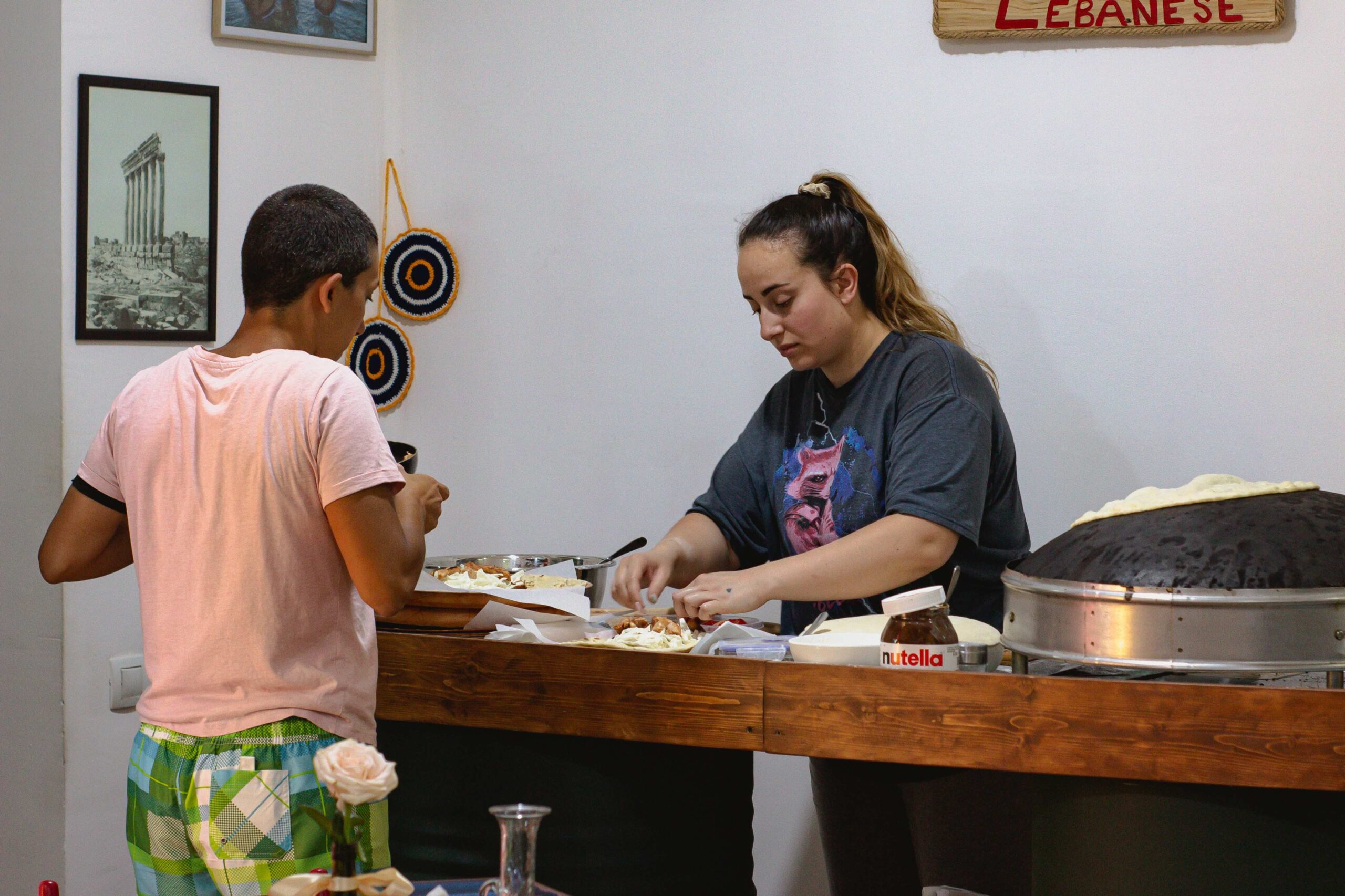
The restaurant’s centrepiece is the saj, a dome-shaped hot stone grill imported from Lebanon on which they cook dishes like the ground meat pie, lahem biaajin, and grilled chicken shish taouk. Everything on the menu is made from scratch using only high-quality raw ingredients. To add to the authentic taste, they import the za’atar and other seasonings directly from Lebanon.
Though this food is new to many residents of Vanadzor, there is a sizeable community of ethnic Armenians from Lebanon in the country who have longed for it. This includes Natacha Kalfayan and her friends, who stopped by one Sunday in early May after seeing an ad online while passing through the town.
‘We were shocked when we tasted the food‘, says Natacha, who adds that it was probably the first time she’d had ‘real Lebanese food’ in Armenia since moving to the country in 2006.
‘The places in Yerevan describe themselves as Lebanese, and they’re good, but it’s not what I know. Here though, the dough, the flavour of the za’atar, the crunchiness — you feel you’re back home.’
Natacha also points out that most Middle Eastern restaurants in Armenia are Syrian-based rather than Lebanese, and so use other spices and have a different feel. Sajj Terouh Setté serves particular specialities which the group hadn’t seen offered anywhere else in Armenia, like the Lebanese village staple keshek, a bulgur and milk soup.
‘The food they make is simple and yet so difficult to get just right. They put their spirit into the food, that’s the Lebanese way‘, she says.
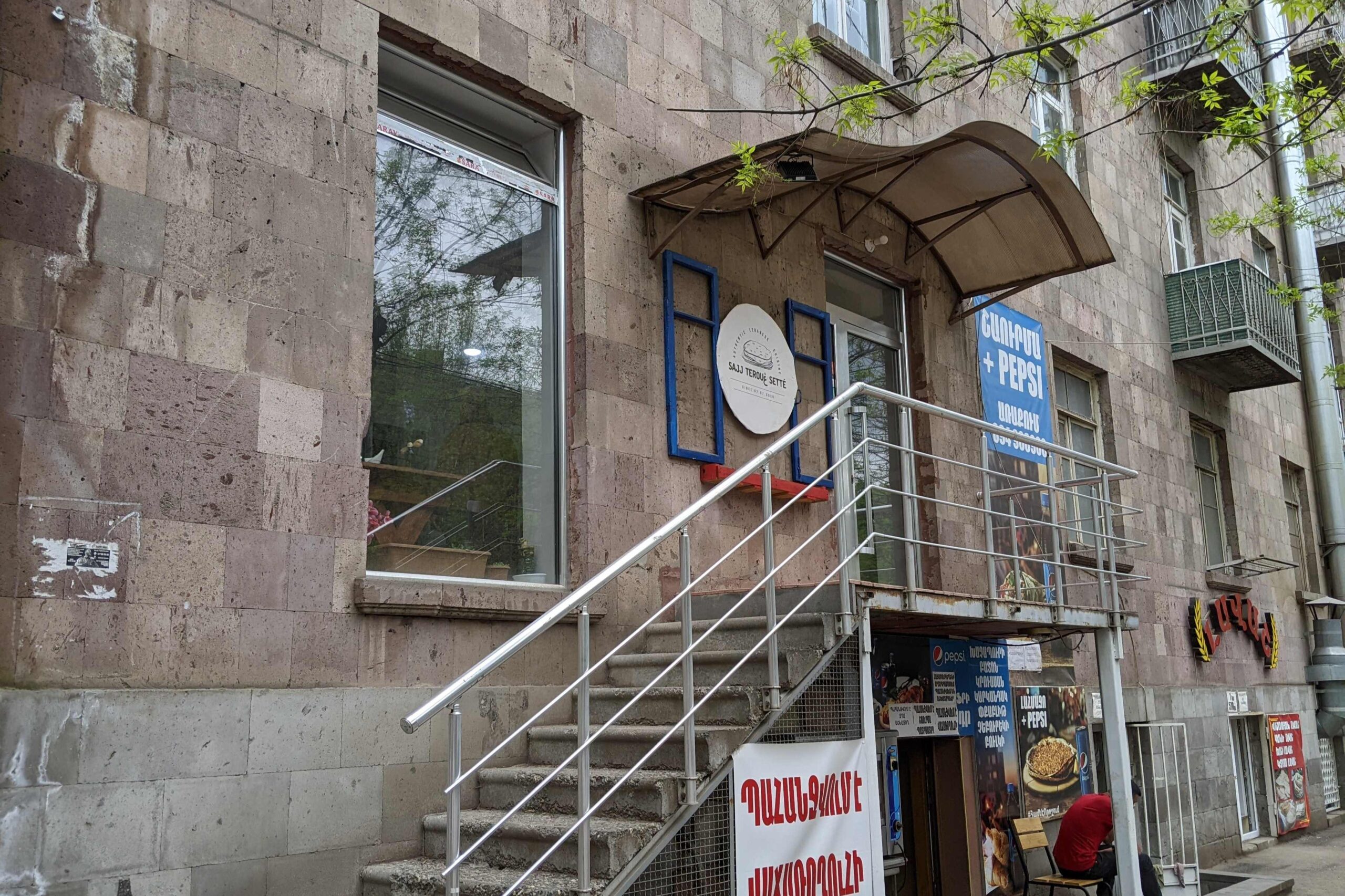
Such reviews closely echo Kiki’s reason for opening the restaurant.
‘When we were living in Yerevan we couldn’t find a real authentic Lebanese place to eat, which broke my heart because Lebanese food is delicious’, explains Kiki.
She decided to give the ‘privilege’ to Vanadzor, a place she had fallen in love with on their first visit there.
‘After visiting Vanadzor, it was like a piece of our hearts stayed there‘, says Kiki. ‘We lived in Yerevan for a year and only knew a few people, whereas after a month in Vanadzor, we already knew the entire neighbourhood.’
Now open for the past half year in Vanadzor, the restaurant’s business has been boosted by Russian migrants who have also come to Armenia due to economic sanctions and political turmoil at home.
‘Besides learning Armenian, we’re also learning Russian‘, says Kiki. ‘Sixty per cent of our business are Russians who live here now because of the war in Ukraine.’
It helps that the Russians tend to be more culinarily adventurous than the local Armenians, Kiki says, though noting that once locals do try their food, they become repeat customers too. She’s invigorated by the opportunity to introduce her favourite foods to people who might never have tasted it otherwise, allowing her to maintain a special link with her homeland from far away.
‘Here, I created my own little Lebanon‘, says Kiki. ‘The Lebanon that I love and want to keep remembering, that I want other people to discover.’




